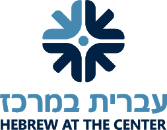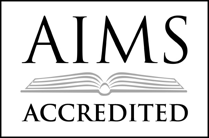The Power of Questions: Students Work with Podcast Producer and Delve into Jewish Sources in the Scholars Forum
November 16, 2017 by
In MILTON’s Scholars Forum, guest speakers in various fields share real-world knowledge with the students – and then faculty and students connect the learning to our ancient texts. Just as the sixth graders learned about various aspects of documentary filmmaking, they have also been studying Jewish sources at each stage of the project.
Nahanni Rous, a MILTON parent and a podcaster, led a lesson on the art of the interview. The conversation included tips for conducting pre-interviews and on-camera interviews, building a rapport with interview subjects, the art of asking open-ended questions, the importance of being attuned to the interview subject’s responses, and the role of documentation and organization in production. Students also had the opportunity to practice these skills by crafting questions and conducting an interview in class of their teacher, Mrs. Schopf. Not surprisingly, much of the conversation revolved around how to construct questions that elicit rich responses and the role that these questions/answers play in constructing a narrative.
We continued our learning by looking at the role of questions in the Torah. Students analyzed various questions that appear in Torah texts to determine the purpose of a particular question in the text. For example, after they have eaten from the Tree of Knowledge, God opens the dialogue with Adam and Eve in Bereshit [Genesis] Chapter 3 by asking them “Ayeka” – “Where are you?” Did God not know where they were? Why open a dialogue like this? This led to a discussion in which students shared their many-faceted answers – and added to our conversation about perspectives.
We talked about the tone of voice one uses when questioning a guest. When the angel of God approaches Hagar in the wilderness after she has cast the dying Ishmael under a bush and has seated herself far from him (Bereshit Chapter 21), he asks her “Ma lach Hagar” – “What is the matter with you, Hagar?” That question can be asked in a sympathetic or accusatory manner. We had the students ask it in various ways, coming to the understanding that their tone in interviews could elicit stimulating answers or shut the conversation down.
We also looked at the story of Cain killing Abel and Cain’s question to God after God asks him where his brother is (Bereshit Chapter 4). Says Cain, “Hashomer achi anochi?” – “Am I my brother’s keeper?” Did Cain really want an answer to that question, or might it have been intended to challenge God’s questioning of him?
Earlier in the year, sixth graders learned about the Jewish perspective on other aspects of their documentary, including memory. Teachers and students explored the concept of Zichronot [Remembrances] that we invoke in the Amidah prayer on Rosh Hashana. What does it mean for us that God remembers? What does it mean for us as humans to remember? We then looked at the fourth of the Ten Commandments: “Remember the Shabbat day to keep it holy.” In this case, is remembering something we do only inside our heads? Or do we create an artifact or participate in an event outside of ourselves as an act of remembrance?
Students also explored the theme of our documentary – From Vision to Reality – with a Jewish lens. We analyzed the first few chapters of the book of Shmot [Exodus] about the slavery in and exodus from Egypt, using a different perspective than usual. We looked at the text through the following lens and utilizing these questions: What was Bnei Yisrael’s [the Israelites’], reality in Egypt? What was God’s vision for taking them out of slavery into freedom? What were Moshe’s reality and his vision? How did God, Moshe, and Aharon bring the Israelites into their new reality, putting their vision into action?
Through this experience of learning with visiting experts and delving into Judaic sources, students are developing a deeper understanding of memory, of the circuitous path from vision to reality, and of the importance of asking thoughtful questions and considering multiple perspectives.






